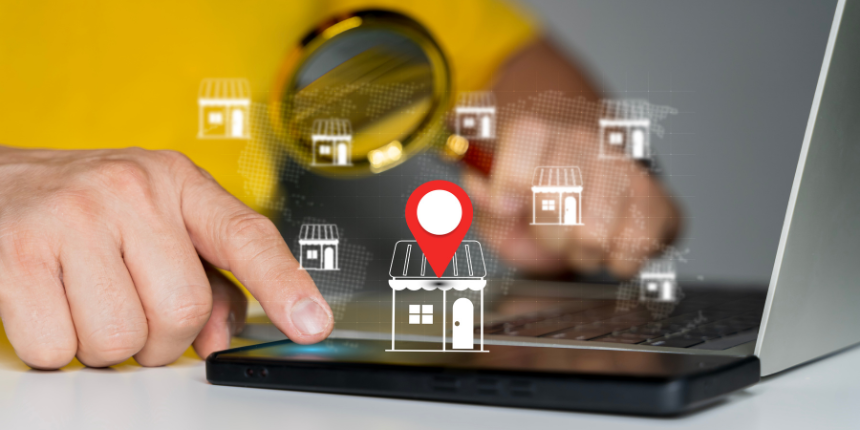
Maximize your local presence through strategic location management.
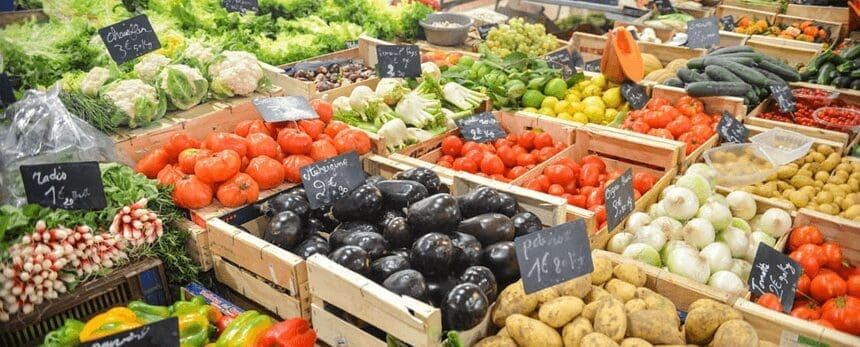
The amount of food waste produced around the world, and in the UK, is shocking…
Here are just a few facts you may not know:
With stats like these, it is impossible to deny just how harmful and careless our food production and consumption systems and habits are (though no doubt, Trump could give it a go). Change is necessary if we are to try and curb the damage we are doing to the planet, and work towards ending the gross inequality we’re accommodating.
While a number of countries have introduced measures to reduce national levels of food waste, Britain comes up embarrassingly short. According to a survey conducted by the Waste and Resources Action Programme (WRAP), UK households binned £13bn worth of food in 2015 that could have been eaten, with an estimated 7.3m tonnes of household food waste thrown away. This meant that the average UK household wasted £470 worth of food, which went in the bin when it could have been eaten. The avoidable food waste generated 19m tonnes of greenhouse gases over its lifetime – preventing that pollution would be equivalent to taking one in four cars off UK roads.
While steps are being taken by our European neighbours to reduce their output (France’s parliament has announced measures to tackle food waste by passing a law banning supermarkets from destroying unsold food, obliging them to give it to charities or to put it to other uses such as animal feed), the UK doesn’t seem to have got the message…
What can you do?
When faced with a problem of such epic scale, it is far too easy to believe that there is nothing you can do to help – ‘the problem is beyond my control, and any action I take will be insignificant, there is no use’. This is not true; every action counts, and there are a number of things you can do to help. While food waste is a huge international problem that needs to be addressed at the highest level and implemented through nation-wide laws and schemes, if we work to acknowledge and address this problem at a local level, significant results can be achieved.
A number of companies have sprung up in the past few years, all geared towards helping individuals and businesses reduce food waste. Technology has played a key role, with a number of apps designed to connect those with surplus food and those with a lack of food, ensuring waste is minimised and those in need receive the help required. All focusing on the local, these initiatives cater to individuals and businesses, creating ethical, environmental, and economic success.
Here are just a few of the apps that can help you minimise your food waste.
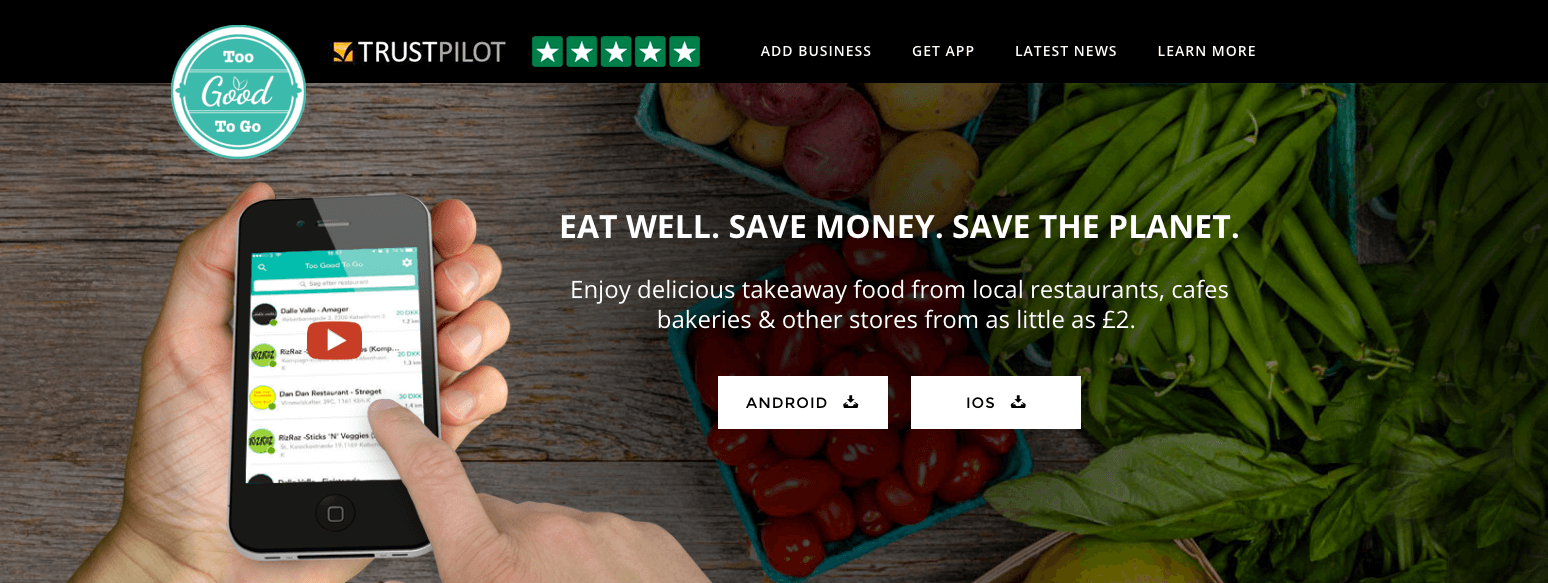
Too Good To Go is a hyper-local environmental social enterprise dedicated to reducing food waste. The app links you with fresh, delicious restaurant food that would otherwise be thrown away – all at discounted prices from as little as £2. Through the app you order food from local restaurants, cafes and bakeries, and then collect it up to an hour before closing time, enjoying quality food on the cheap.
Subscribe to our monthly newsletter.
The app is a win-win for both customers and restaurants. It is a savvy option for restaurants, as it allows business to maximise their profits and build their reputation as ethical and sustainable. TGTG estimates that each plate of leftover food costs restaurants 97p– a sum they can easily make back if they sign up to the app and sell their surplus for a minimum of £2 a plate.
As well as making economic sense, it allows restaurants to reduce the amount of food they waste. WRAP estimates the hospitality industry produces food waste equivalent to £3 billion per year. For ever meal eaten in a restaurant in the UK, half a kg of food is wasted in prep, spoilage and left-overs. This amounts to over 6000 000 tonnes of waste every year.
Operating in over ten cities across the UK, download the free app now to receive delicious food for almost nothing, all while doing your bit for the environment.
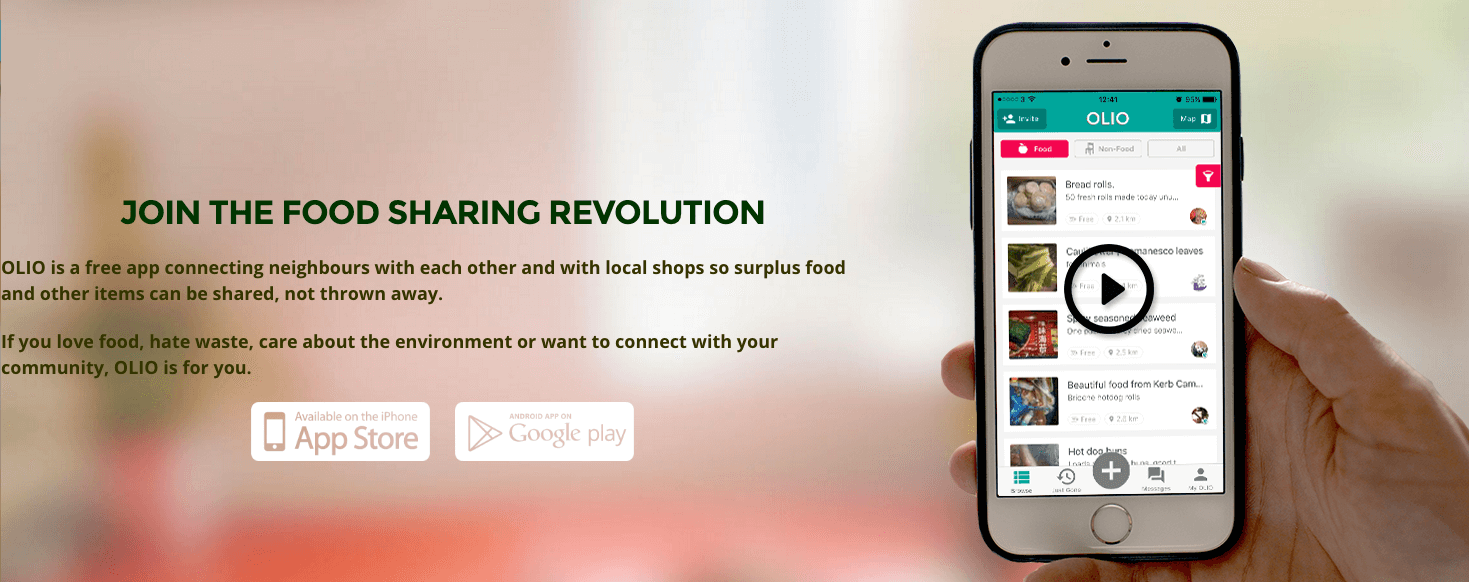
Launched in 2016, OLIO connects app users to excess home-grown vegetables, food nearing its sell-by date in local shops, and any unwanted food in households. Users upload pictures and details of the excess produce they have, and other users are sent alerts of what’s available in their area, then arranging to collect items from the home, a drop box, or another location.
This hyper-local app not only works to reduce unnecessary waste (it has already prevented 100 000 food items being sent to landfill) but also foster a sense of community and engagement between individuals as it enables neighbours to meet up and establish relationships.
This organisation also operates on a larger scale, encouraging shops and cafes to sign up to their Food Waste Hero (FWH) programme. This involves OLIO matching your shop or café with a volunteer, who will then come to collect any unsold surplus food at the end of the day and add it to OLIO to share within their local community.
Additionally, shops/cafés can upload any of their surplus food directly – all you need to do is download the app, create an account and add any food you have that you’re unable to sell or donate to charity, but is still delicious and can be eaten. Local residents will then be notified when you share your unsold food, and they can message you to confirm and collect.
[iframe src=”https://www.youtube.com/embed/SzQKuOUOa4o ” width=”560″ height=”315″]
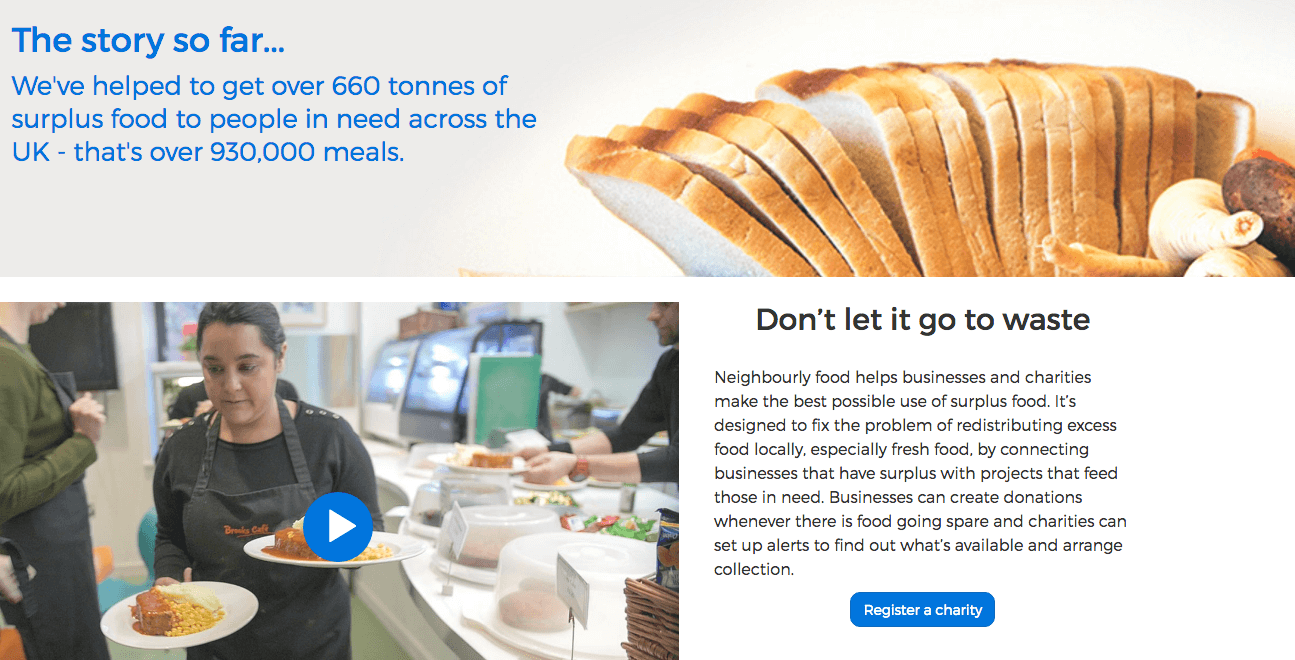
A part of Neighbourly, this social platform connects local community projects with companies, working to help ease the logistical problem of redistributing unwanted food.
Neighbourly Food allows anyone in the food supply chain (retailers, manufacturers, distributors etc.) to post details of their food surplus online with location and expiry times. Charities can search for what they need or set up alerts, accept donations online and then arrange collection.
The company has partnered with M&S since 2015, helping to distribute their food surplus – connecting every store with a local charity to maximise the amount of food that can be redistributed. So far, they’ve donated over 650 tonnes to 550 UK charities.
[iframe src=” https://player.vimeo.com/video/126516372?color=009cff&byline=0&portrait=0″ width=”560″ height=”315″]
Just a few small changes on your specific local level have the power to make a difference. We need to stop thinking this is not our problem, and start acting.
Maximize your local presence through strategic location management.
Maximize your local presence through strategic location management.
Subscribe to our monthly newsletter.